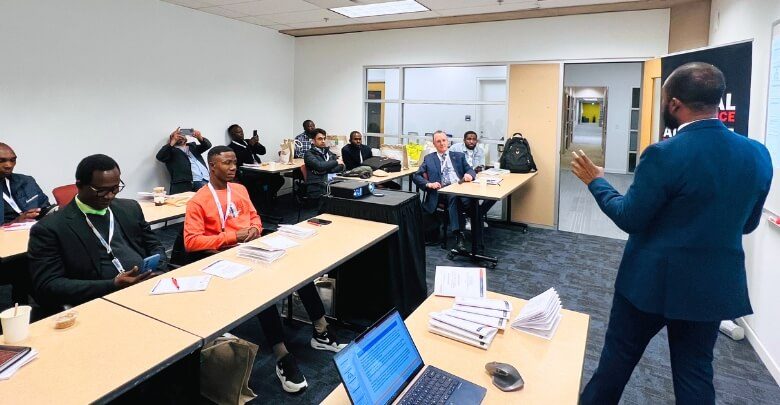Organizing a conference can be a daunting task, especially when it comes to finding the right speakers. The success of any conference typically depends on the speakers’ quality and ability to engage the audience.
Therefore, finding the right speakers for your conference is crucial to its success. So, how to find speakers for a conference?
To find speakers for a conference, consider reaching out to industry leaders, using professional networks, attending events, leveraging social media, and utilizing speaker bureaus or agencies.
In this article, we will provide you with a guide on how to find speakers for your conference.
Key Takeaways
- Understand the conference theme and audience
- Research target demographics and industry trends
- Reach out to potential speakers and discuss details
- Evaluate potential speakers’ credentials and ability to engage audiences
Understand Your Conference Theme and Audience
Identifying and comprehending the conference theme and audience is a crucial preliminary step in the speaker selection process that enables organizers to curate a customized and engaging program.

To achieve this, organizers should begin by researching the target demographics to understand their interests, needs, and expectations. This information can be obtained through surveys, online research, and social media analytics.
By doing so, organizers can tailor the conference theme and speakers to cater to the audience’s preferences. Another crucial aspect is the topic’s relevance. Organizers should research the current trends in the industry and the topics that are most relevant to the audience. This helps select speakers who can provide insights on the latest developments and offer practical solutions to the industry’s challenges.
Additionally, organizers should consider the audience’s interest in the speakers’ backgrounds, experiences, and achievements. By selecting speakers who align with the audience’s interests, organizers can create a more engaging and interactive conference experience.
Utilize Online Resources
Utilizing various online platforms and databases can aid in the discovery of individuals who possess the experience and qualifications necessary to present at a conference.
Online directories and databases can be used to source potential speakers who have a background in the conference theme and have delivered engaging presentations in the past.
Additionally, social media outreach can be useful for finding individuals who may not be listed on traditional directories but have a strong online presence and following. LinkedIn, Twitter, and Facebook can be used to search for individuals who have relevant experience and a strong online presence.
Once potential speakers have been identified through online resources, reach out to them and gauge their interest in speaking at the conference. You can easily do that through email or phone calls and provide details about the conference theme, dates, and expectations for the speaker.
Establish a relationship with the potential speaker and discuss any fees or expenses associated with their presentation. By utilizing online resources and reaching out to potential speakers, conference organizers can ensure that they find the most qualified and engaging individuals to present at their event.
Reach Out to Potential Speakers
Employing online resources is undoubtedly a useful method for finding potential speakers for a conference. However, it is not the only way.
Networking events provide a chance to meet and interact with individuals already established in the industry. Through these events, it is possible to find individuals who are knowledgeable and passionate about sharing their expertise with others.
Attending these events is an excellent way to establish contacts with potential speakers and learn more about their work and speaking styles. Moreover, it can also provide an opportunity to discuss the conference’s theme and the goals the organizer has in mind for the event.
Another way to find potential speakers is through referral programs. Referrals come from a trusted source and can provide valuable insight into the speaker’s background and ability to engage with audiences at the conference.
Referral programs are an effective way to find speakers who have already established themselves in the industry and have a proven track record of delivering engaging presentations.
In addition, by reaching out to potential speakers, organizers can learn more about the speaker’s experience, the topics they are passionate about, and their availability.
By doing so, organizers can ensure that the selected speakers are a good fit for the conference and have the necessary expertise to deliver an engaging presentation.
Evaluate Potential Speakers
To ensure the success of a conference, speaker selection is a crucial step that requires a thorough vetting process.
- To assess the suitability of potential speakers, consider their expertise, experience, and ability to deliver engaging presentations that align with the conference’s theme and goals.
- The selection process should be based on the relevance of the speaker’s topic to the conference’s theme, the speaker’s experience in delivering presentations, and the audience’s interest in the speaker’s topic.
- Other factors to consider include the speaker’s availability, credibility, and reputation.
- During vetting, thoroughly review the speaker’s background, including their education, publications, and previous speaking engagements.
- Evaluate the speaker’s presentation style, including their ability to engage the audience, communicate effectively, and use appropriate visuals.
- Consider the speaker’s availability and willingness to participate in the conference and their overall fit with its goals and objectives.
- By carefully selecting and vetting potential speakers, conference organizers can ensure a successful event that meets the needs and interests of their audience.
Prepare for the Event
In preparation for the event, careful planning and organization are paramount to ensure seamless execution. Creating an event schedule is one of the first steps in preparing for a conference. This schedule should include each speaker’s presentation’s time, date, and location.
Additionally, it should include breaks between sessions, networking events, and other activities in which attendees can participate. The schedule should be carefully planned to ensure that each speaker has enough time to present their topic and attendees have enough time to ask questions and participate in discussions.
Another important aspect of preparing for a conference is budget allocation. Allocate resources appropriately to ensure that the conference is successful. This includes allocating funds for speaker fees, travel expenses, and accommodations.
Funds should be allocated for marketing and advertising the conference to potential attendees. Budgeting also involves identifying potential sources of revenue, such as sponsorships or ticket sales, and allocating resources to these areas.
By carefully planning and allocating resources, conference organizers can ensure that the event runs smoothly and meets the needs of attendees and speakers alike.
Final Words
Finding speakers for a conference requires a systematic and strategic approach. The first step is to understand the conference theme and target audience, which will help identify potential speakers who possess the necessary expertise, knowledge, and experience.
Utilizing online resources such as professional networks, social media, and speaker databases can provide a wealth of information and help broaden the search for suitable speakers.
Once a list of potential speakers has been compiled, reach out to them and evaluate their suitability based on their availability, willingness to participate, and presentation style.







